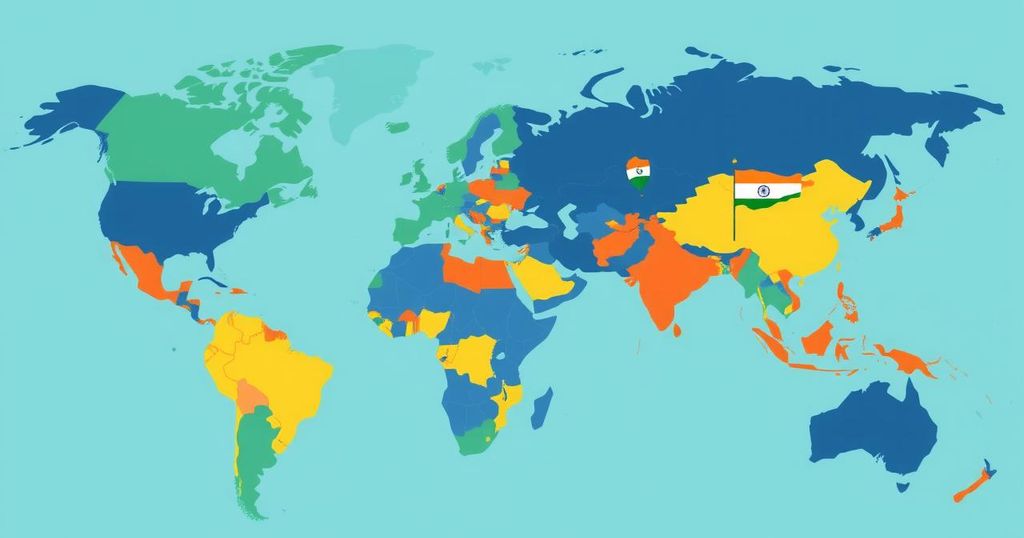Leaders of Indian Descent: A Global Political Presence

Countries worldwide have seen leaders of Indian descent rise to high political positions. Significant examples include Rishi Sunak in the UK, Chan Santokhi in Suriname, António Costa in Portugal, and various leaders in Guyana, Singapore, and Mauritius. This reflects the Indian diaspora’s political influence and enduring legacy.
India’s diaspora is the largest globally, leaving significant political marks across various nations. Leaders of Indian descent have gained prominent political positions worldwide, showcasing a legacy attributed to resilience and educational success. The political influence of Indian-origin leaders is evident across continents—from the United Kingdom to the Caribbean—demonstrating their impact and how diaspora communities shape governance in new regions.
At least ten countries have witnessed individuals of Indian heritage ascend to the highest political offices, either as heads of state or heads of government. Notable examples are varied and illuminating:
In the United Kingdom, Rishi Sunak made headlines in 2022 by becoming the first British Prime Minister of Indian descent. Sunak, previously the Chancellor of the Exchequer, symbolizes the integration of the Indian community into British political life.
Suriname’s President, Chandrikapersad “Chan” Santokhi, has held office since 2020 and is also of Indian descent. His leadership serves as a reminder of the Indian indentured laborers’ legacy brought to South America in the 19th century, marking a connection to that historical migration.
Portugal’s António Costa boasts Goan-Indian heritage from his father. Serving as Prime Minister from 2015 to 2024, he reflected a shift in European politics toward incorporating diverse representation, showcasing a blend of cultures in leadership roles.
Guyana stands out with influential leaders like Cheddi Jagan and Bharrat Jagdeo, both Presidents of the nation and of Indian ancestry. The Indo-Caribbean population, whose roots trace back to indentured laborers during British colonial rule, remains significant in shaping the nation’s political landscape.
In Singapore, representation is well-represented by individuals such as Pritam Singh, Leader of the Opposition, and Halimah Yacob, who served as President from 2017 to 2023. Their mixed heritage signifies the strong Indian influence within the governance of this diverse city-state.
Mauritius has also seen several leaders of Indian descent, including Sir Anerood Jugnauth and his son, Pravind Jugnauth. Their influence underscores the prominent role of the Indo-Mauritian majority in the political sphere, solidifying the connection of Indian heritage in the island nation’s governance.
In summary, the political influence of Indian-origin leaders across various nations highlights the significant contributions of the Indian diaspora to global governance. Countries such as the UK, Suriname, Portugal, Guyana, Singapore, and Mauritius illustrate how deeply intertwined the Indian community is with local politics. This influence not only marks a cultural connection but also showcases the continuing legacy and resilience of Indian descendants in shaping the world stage.
Original Source: globalsouthworld.com







